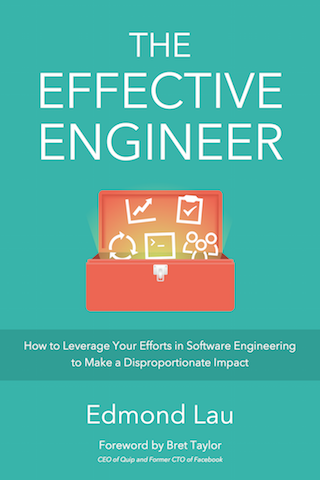What Research on Happiness and Motivation Can Tell Us About Finding Meaning in Our Work

In The Upside of Irrationality, behavioral economist Dan Ariely describes an experiment he conducted to measure how the meaning of work impacts the motivation for work. In the experiment, he recruited Harvard students who loved Legos to build Lego Bionicle robots and paid them decreasing amounts for each additional robot built; the first completed robot earned $2, the next $0.11 less ($1.89), the third another $0.11 less ($1.78), and so forth. The research assistant informed the participant that at some point, the Legos would have to be dismantled for the next participant. In one group, the lab had numerous Lego kits available. The assistant would place each of the student’s completed robots on the desk in front of him, and the Lego robots would accumulate on the desk over the session. In the second group, only two kits were available, so as a participant started on the next robot, the assistant would immediately dismantle the previous robot in the event the participant wanted to continue building. Participants in the first group who didn’t see their work immediately dismantled built significantly more robots (10.6 on average) than those in the second group (7.2 on average). 1 Meaningful work led to happier participants, generated more output, and compensated for lower pay.
The experiment teaches a lesson on the importance of meaningful work: people lose motivation with work that they perceive to be pointless. For an employee at a company, the most powerful and sustainable motivator is the sense of meaning derived from work. Meaning comes from working at a company whose mission and long-term vision you believe will have an impact. It comes from working with and building a team whose members you respect, who continually challenges you to learn and get better, and who you can’t bear to let down. It comes from the dopamine rush you get from building and releasing products and services that your users love. What meaning doesn’t come from, however, is the promise of financial rewards.
Money can only buy so much happiness
Contrary to the popular cliché, money can buy happiness. Financial problems with debt, medical bills, rent, food, or other bills all chip away at day-to-day moods increasing worry, sadness, and stress, and extra money relieves many of those basic issues. Moreover, additional disposable income beyond what’s necessary for basic necessities provides opportunities to go out with friends and to enjoy other leisurely experiences that provide happiness.
But money can buy happiness only up to a certain extent. Economics Nobel Prize winner Daniel Kahneman found in a 2010 study that an annual income of $75K was the threshold at which additional income ceases to correlate with additional happiness. 2 Kahneman analyzed more than 450,000 phone survey responses to Gallup and Healthways polls by Americans over 2008 and 2009. Surveyees were asked about their demographics as well as a series of yes/no questions of the form “Did you experience a lot of stress yesterday?” or “Did you smile or laugh a lot yesterday?” to assess their emotional well-being on the previous day.
The data showed that for individuals earning below $75K, logarithmic increases in income (i.e. doubling one’s income) positively correlate with scores for happiness, enjoyment, and smiling and negatively correlate with scores for sadness, worry, and stress. But the effects of income on emotional measures saturate at $75K because money no longer becomes the limiting resource for achieving more happiness. “Beyond ~$75,000 in the contemporary United States, however, higher income is neither the road to experienced happiness nor the road to the relief of unhappiness or stress,” Kahneman writes.
How does $75K compare with, say, average software engineering salaries? According to Glassdoor, in 2012, the U.S. national average for a software’s base salary hovered at $92,648, with a median of $73,100. 3 4 College graduates routinely receive starting salaries of over $100K at top tech companies like Google, Facebook, and Palantir. 5 6 7 Stock options, health benefits, free food, 401(k) matching, and other benefits easily bring total compensation well over Kahneman’s threshold.
A takeaway from Kahneman’s study then, is that beyond $75K, working hard solely for the purpose of making more money, particularly when the work is not meaningful, ends up being an ineffective use of time relative to other activities for achieving happiness. Especially for people working significantly more than 40 hours per week to achieve their high levels of income, time becomes the limiting resource. Intuitively, money generates diminishing returns on happiness because there is insufficient leisure time to spend the money meaningfully.
This is particularly relevant for people who might be considering startups and who might use the potential financial upside as a substitute for meaningful work. Early employees sometimes join startups seeking a shortcut to retirement, but financially motivated employees tend to be the most susceptible to blips in a startup’s performance and to be the first to leave if the situation ever starts to look bleak. The hope of making life-changing amounts of money is too abstract and too far into the future to incentivize and motivate day-to-day work. With time, a number in a bank account that ticks upward becomes an unsustainable and flimsy long-term motivator.
From the perspective of increasing happiness, it’s actually more effective for the typical engineer to either:
- Work fewer hours and find more meaning and happiness in the non-work-related activities that he or she does, or
- Seek more meaningful work, even at the expense of reduced income.
Of course, if you can find meaningful work and high income, that’s great. Many software engineers are fortunate relative to individuals in other professions in that they have the flexibility and luxury to make this tradeoff. So, how can one find more meaningful work?
Achieve flow in work
Mihaly Csikszentmihalyi, a leading researcher in positive psychology, found that a state of “flow” is required for attaining happiness and optimal experiences. Flow is a state of deep enjoyment and total involvement that happens when you’ve found the perfect intersection of challenge, creativity, and skill in an activity. 8 It describes an activity where you’re so engaged in what you’re doing that you lose all sense of time. Given the number of waking hours that everyone spends working, finding flow and meaning in work therefore becomes critical to achieving happiness.
The key to increasing flow-producing conditions at work is to spend more time on autotelic activities, activities that are their own rewards and that an individual is motivated to accomplish without the need for external rewards. In interviewing hundreds of different individuals, ranging from violinists to chess players, from mountain climbers to surgeons, from teenagers to elderly people, across difficult cultures, Csikszentmihalyi found a set of commonalities in how people described their sensations during flow experiences: 9
“[There’s] a sense that one’s skills are adequate to cope with the challenges at hand, in a goal-directed, rule-bound action system that provides clear clues as to how well one is performing. Concentration is so intense that there is no attention left over to think about anything irrelevant, or to worry about problems… [T]he sense of time becomes distorted. An activity that produces such experiences is so gratifying that people are willing to do it for its own sake, with little concern for what they will get out of it, even when it is difficult, or dangerous.”
Work that stimulates your creative potential, that challenges you to focus and learn, and that provides clear goals and short feedback loops for improvement facilitate flow. Daniel Pink echoes this sentiment in Drive: The Surprising Truth About What Motivates Us when he contends that motivation comprises three major elements: autonomy, mastery, and purpose. Autonomy – being able to choose and control what you work on, when and where you do it, how you it, and who you work with – supplies the freedom for choosing work activities that engage your mind. Those activities, especially when they’re opportunities to master skills and to work on projects with meaning and purpose, increase productivity and job satisfaction. 10
Humans aren’t the only ones with a preference for meaningful work. Animal psychology studies have shown that parrots, rats, and other animals may look for meaning as well and actually prefer to press on a bar for food than to eat freely available food. 11 This phenomenon, known as “contrafreeloading,” contradicts the traditional notion that animals strive to maximize output while minimizing effort and suggests that the additional effort may actually make the food more worthwhile.
Whether employees can find meaning in their work determines the time and effort that they’re willing to invest, and the meaning of work affects the sustainability of work hours over the long run. Hence, meaningful work is particularly important at smaller companies where employees are expected to work longer hours, like at startups that expect 60-hour weeks. Failure to find meaning can quickly crush any joy or motivation to work.
Strategies for finding meaning in your work
Barriers to meaningful work exist whether you’re working at a more established company or at a fast-moving startup. When I worked at Google between 2006 and 2008, its protected brand made it extremely difficult to make anything but the most minimal UI changes to search results without getting the approval of people including Marissa, Larry, and Sergey. It became apparent that engineers could easily spend months or a year on a project only to have it shelved because it had no plausible launch path. Like the participants whose Lego creations were dismantled, many ex-Googlers lost motivation and left for smaller startups after their projects were scrapped. 12
The desire to find meaningful work and not be a cog in a large machine is one of the key reasons why people decide to leave big companies for startups. But for all their stereotypical nimbleness, startups can also create situations that deprive work of its meaning. During my time at Ooyala, our team spent over a month building out custom transcoding infrastructure, a custom portal, and a custom analytics module in a deal to power the overhyped Joost 13; a few months afterwards, Joost restructured, lost its CEO, and stopped using Ooyala. 14 That they paid for the custom work provided little solace for the loss of engineering morale that resulted from seeing over a person-year of work and excitement evaporate, and it and similar incidents very likely contributed to some members burning out and eventually leaving the team.
So what strategies can we take to find flow in our work? What follows are a few mentalities and strategies that I’ve found important in keeping my work in software engineering meaningful and that I’ve seen others successfully use:
Validate new ideas early and often with simple proofs of concept. The more time that’s spent on a project before it’s scrapped, the more draining it can be on the morale of the people who worked on it. Low-fidelity mocks and hacked up prototypes that aren’t necessarily built the right way can both provide quick sanity checks on ideas before investing substantially more resources into the project.
Iterate quickly and often. Reducing the time to build a prototype or to iterate from months down to weeks or days or even hours is critical. Many times, this requires an investment in infrastructure and abstractions to make prototyping fast. Having to write C++ code, for instance, to prototype changes to a UI almost certainly dooms your project to fail; while seemingly obvious, this is what many people working on Google Search UI had to do while I was there from 2006-2008. I spent part of my 20% project time making quicker demo tools for prototyping.
Work under decisive leadership. Eliminating the bureaucratic hurdles, if any, as early as possible and securing buy-in from key decision makers who can commit to their choices substantially reduces the probability that someone in the chain of command withholds his approval at the last minute and scraps your project weeks or months too late. Part of this involves working under strong leadership; the other involves proactively seeking their input when consensus is necessary.
Work on multiple, ongoing projects of varying degrees of risk and size. This is a valuable piece of advice that one of my managers at Google shared with me. Diversifying the projects that you individually work on increases the probability that at least some of your projects will succeed, which is critical to maintaining a sense of accomplishment when other ones fail or take longer than expected.
Automate unmeaningful work. There are few work responsibilities worse than being woken up at 3am in the morning by a pager duty alert that could have been resolved by a machine. By scripting and automating server restarts, dynamic scaling of web tiers, and code deployments, you reduce the manual maintenance costs of services and increase the proportion of time spent on what’s actually meaningful.
In Ariely’s Lego experiment, he describes the meaningless work condition where Legos were immediately dismantled after assembly as the “Sisyphus condition.” 15 In Greek mythology, the king Sisyphus was punished by the gods with the never-ending labor of rolling a great boulder up a steep hill, only to watch the it roll back down every time. To ensure that your work doesn’t become a Sisyphus condition, push hard to achieve flow and ensure that the working hours you spend every week are meaningful.
Dan Ariely, The Upside of Irrationality: The Unexpected Benefits of Defying Logic. ↩
Daniel Kahneman and Angus Deaton. “High income improves evaluation of life but not emotional well-being”. ↩
“15 Tech Companies’ Software Engineer Salary Revealed”, Glassdoor Blog. ↩
“How much does Google pay a new grad software engineer?”, Quora. ↩
“How much does Facebook pay a new grad software engineer?”, Quora. ↩
“How much does Palantir pay a new grad software engineer?”, Quora. ↩
Mihaly Csikszentmihalyi. Flow: The Psychology of Optimal Experience.. ↩
Flow, p71. ↩
Daniel Pink, Drive: The Surprising Truth About What Motivates Us ↩
Per Jensen, “Natural Behaviour and Behavioural Needs of Farm Animals”. ↩
“What startups have been founded by ex-Googlers since 2004?”, Quora. ↩
Michael Learmonth, “Web TV Pioneer Joost Gives Up Dream, Restructures” ↩
Dan Ariely, “Man’s search for meaning: The case of Legos”. ↩

“A comprehensive tour of our industry's collective wisdom written with clarity.”
— Jack Heart, Engineering Manager at Asana
“Edmond managed to distill his decade of engineering experience into crystal-clear best practices.”
— Daniel Peng, Senior Staff Engineer at Google

“A comprehensive tour of our industry's collective wisdom written with clarity.”
— Jack Heart, Engineering Manager at Asana
“Edmond managed to distill his decade of engineering experience into crystal-clear best practices.”
— Daniel Peng, Senior Staff Engineer at Google


















Leave a Comment